The 8th International Conference on Environmental Science and Civil Engineering (2025 ICESCE)
Nanchang, China, 11-12 October 2025
History
The 7th International Conference on Environmental Science and Civil Engineering (2024 ICESCE) held on December 27-28, 2024, in Nanchang, China. 2024 ICESCE was organized by Hubei Zhongke Institute of Geology and Environment Technology.
The topics related to reporting Environmental Science and Civil Engineering, was pondered on, through the interactions between academic researchers from different regions and cultures. 2024 ICESCE included inviting talks, oral presentations and poster presentations of refereed papers. We invited submissions of papers and abstracts on all topics related to Environmental Science and Civil Engineering. The conference provided networking opportunities for participants to share ideas, designs, and experiences on the state-of-the-art and future direction of Environmental Science and Civil Engineering. 2024 ICESCE featured a high-quality technical & experiential program dealing with a mix of traditional and contemporary hot topics in paper presentations and high-profile keynotes.
Program
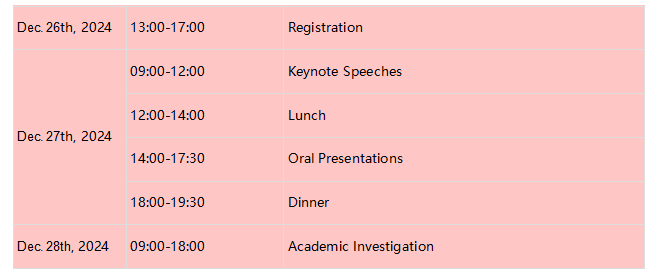
Chair:
Bing Xu, Nanchang Institute of Technology, China, Prof.
Committee member (Total 85):
| George Papazafeiropoulos, Department of Structural Engineering, National Technical University of Athens, Greece, Dr. |
| Theodoros Chrysanidis, Department of Civil Engineering, School of Engineering, Aristotle University of Thessaloniki, Greece, Dr. |
| Xingzheng Wu, Department of Civil Engineering, Hebei University, China, Associate Prof. |
| Theodoros A. Chrysanidis, Department of Energy Systems, University of Thessaly, Greece, Dr. |
| Mohammad Arif Kamal, Architecture Section, Aligarh Muslim University, India, Associate Prof. |
| Dan Dobrotă, Department of Industrial Engineering and Management, Lucian Blaga University of Sibiu, Romania, Prof. |
| Mohammadreza Vafaei, Department of Structure and Materials, School of Civil Engineering, Universiti Teknologi Malaysia, Malaysia, Associate Prof. |
| Hadi Sarvari, Birmingham City University, UK; Islamic Azad University, Iran, UK/Iran, Assistant Prof. |
| Krishanu Roy, University of Waikato, New Zealand, Dr. |
| Hamid Gadouri, Khemis Miliana University, Dr. |
| Talib E. Butt, University of Northumbria, UK, Assist. Prof. |
| Olivera Đokić, The Highway Institute, Serbia, Dr. |
| Ancuța Rotaru , Gheorghe Asachi Technical University of Iasi, Romania, Prof. |
| Mahyar Ramezani, Florida International University, USA, Dr. |
| Mehdi Panji, Islamic Azad University, Zanjan Branch, Iran, Assoc. Prof. |
| Ali Reza Tolou Kian, Iran University of Science and Technology, Iran, Assist. Prof. |
| Gravit Marina, Peter the Great St. Petersburg Polytechnic University, Russia, Assoc. Prof. |
| Mario D'Aniello, University of Naples Federico II, Italy, Prof. |
| Ali İhsan Çelik, Kayseri University, Turkey, Dr. |
| Iman Faridmehr, South Ural State University, Chelyabinsk, Russian Federation, Russia, Dr. |
| Theodoros Chrysanidis, Aristotle University of Thessaloniki, Greece, Dr. |
| Saeed Reza Sabbagh Yazdi , K. N. Toosi University of Technology, Iran, Prof. |
| Yao Wang, Yancheng Polytechnic College, Yancheng, China, Dr. |
| Socalici Ana, Universitatea Politehnica Timisoara, Romania, Prof. |
| Ali Aghajanian, Universidad de Cantabria, Spain, Dr. |
| Phu Minh Vuong Nguyen, Główny Instytut Górnictwa, Poland (left vie for long time), Dr. |
| Nicola Chieffo, Universidade do Minho, Portugal, Dr. |
| Binhui Ma, Hunan University of Science and Technology, China, Prof. |
| Behrouz Gatmiri, University of Tehran, Iran, Prof. |
| Michele Penza, Ente Per Le Nuove Tecnologie, l'Energia e l'Ambiente, Italy, Prof. |
| Antonio Alonso Jiménez, CSIC - Instituto Geológico y Minero de España (IGME), Spain, Dr. |
| Vishnu Diyaljee , GAEA Technologies Ltd., Canada, Dr. |
| Daniel Milbrath De Leon, Universidade Federal do Rio Grande do Sul, Brazil, Prof. |
| Faramarz Safazadeh, LLC, Sandy, USA, Dr. |
| Mohamed Bassyouni, Mohamed Bassyouni, Department of Chemical Engineering, Faculty of Engineering, Port Said University, Egypt, Professor |
| Messaoud Fatmi, Messaoud Fatmi, Research Unit on Emerging Materials (RUEM), University Ferhat Abbas of Setif 1, Professor |
| Mohammad H. Moradi, Electrical Engineering Group, Department of Engineering, Bu Ali Sina University, Iran, Professor |
| Adil Alahmad, Istanbul University-Cerrahpasa, Turkey, Dr. |
| Raul Rivas-Perez, Department of Automation and Computing Sciences, Universidad Tecnologica de la Habana, Cuba, Professor |
| Moataz Barakat, Department of Geology, Tanta University, Egypt, Professor |
| Saeed Dinarvand, Mechanical Engineering Department, Islamic Azad University, Iran, Associate Professor |
| Meysam Azhdari, Department of Electrical and Electronic Engineering, Shiraz University of Technology, Iran, Dr. |
| Djamel Boutagouga, Civil Engineering department, Larbi Tebessi University, Algeria, Professor |
| Farouk Zouari, Laboratory d' Automatique, ENIT - Université de Tunis El Manar, Tunisia, Dr. |
| Yasir Bashir, Department of Geophysical Engineering, İstanbul Teknik Üniversitesi, Turkey, Assistant Professor |
| Asmare Belay Nigussie, Kombolcha Institute of Technology, Wollo University, Ethiopia, Lecturer |
| Lorand Szabo, Technical University of Cluj-Napoca, Romania, Professor |
| Seiyed Mossa Hosseini, Physical Geography Department, Unievrsity of Tehran, Iran, Associate Professor |
| Ahmed Omara, Electronics Research Institute, Egypt, Assistant Professor |
| Lokendra Singh Thakur, Chemical Engineering Department, Ujjain Engineering College, India, Professor |
| Oleksiyovych Spodoba Mykhailo, National University of Life and Environmental Sciences of Ukraine, Ukraine, Dr. |
| Ahmad Fakharian, IEEE Senior Member, Department of Electrical Engineering, Islamic Azad University, Iran, Associate Professor |
| Raul Duarte Salgueiral Gomes Campilho, Department of Mechanical Engineering, School of Engineering, Instituto Superior de Engenharia do Porto, Portugal, Professor |
| Ahmed Mohammed Kamaruddeen, Faculty of Engineering and Technology, University of Botswana, Botswana, Associate Professor |
| Rehmat Bashir, Xi'an University of Science and Technology, China, Post-Doctor Research Fellow |
| Krzysztof Ejsmont, Faculty of Mechanical and Industrial Engineering, Warsaw University of Technology, Poland, Assistant professor |
| Ryspek Usubamatov, Faculty of Transport and Manufacturing Engineering, I. Razzakov Kyrgyz State Technical University, Kyrgyzstan, Professor |
| Salah Ud Din Khokhar, School of Intelligent Manufacturing and Control Engineering, Qilu Institute of Technology, China, Associate Professor |
| Giuseppe Ciaburro, Department of Architecture and Industrial Design, Università degli Studi della Campania, Italy, Associate Professor |
| Vadim Azhmyakov, Research team, 1ex Corp., UAE, Professor |
| Hamadjam Abboubakar, University Institute of Technology, University of Ngaoundéré, Cameroon, Dr. |
| Payman Rezaee, Department of Geology, University of Hormozgan, Iran, Associate Professor |
| Somvir Singh, Government of India, Ministry of Water Resources, Central Ground Water Board, India, Dr. |
| Maryam Ahankoub, PayameNoor Universiy, Iran, Assistant professor |
| Chahreddine NAJI, Carthage University, Tunisia, Dr. |
| Goze Akoglu, Yale University, New Haven, United States, Dr. |
| Marios C. Kirlas, School of Agriculture, Aristotle University of Thessaloniki, Greece, Dr. |
| Marc A. Vallée, Geo Data Solution GDS Inc., Canada, Dr. |
| Americo Scotti , Production Technology West, Trollhattan, Sweden, Professor |
| Liyun Zeng, Panzhihua University, Panzhihua, China, Dr. |
| Bing Xu, Nanchang Institute of Technology, China, Prof. |
| Xiang Ping, Central South University, China, Prof. |
| ... |
keynote Speaker
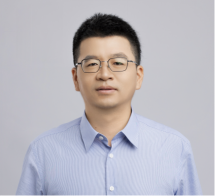
Minghua WANG, Xiamen University, China, Prof.
Biography:
Dr. Minghua WANG is a professor from College of the Environment & Ecology, Xiamen University. He received his doctoral degree from Xiamen University at 2007. From 2007 to 2012, he worked as a postdoctoral researcher in Xiamen University. He also performed a postdoctoral work in Pierre and Marie Curie University during 2010-2011. Meanwhile, he worked in Sungkyunkwan University as Brain-pool invited scientist during 2016-2017. He is primarily doing comparative proteomics with marine copepods and small fish as models. He is mostly looking at it from the point of view of molecular ecotoxicology and ecophysiology to find out how metal pollutants (e.g., mercury) will affect marine organisms in the context of global change (e.g., ocean acidification and warming). He has published more than 60 SCI papers in international scientific journals including Nature Climate Change, Global Change Biology, Environmental Science & Technology, and Journal of Hazardous Materials.
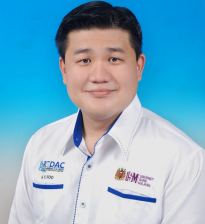
Foo Keng Yuen, Universiti Sains Malaysia, Malaysia, Prof.
Biography:
Prof. Dr. Foo Keng Yuen is the UNESCO Co-Chair on Ecohydraulics for Sustainable Water Infrastructures for SDG 6 in the Asia and the Pacific Region. His research interests are environmental engineering, waste utilization, water treatment technology, catalysis, food security and toxicology, and environmental health. He has involved in different kinds of university, national and international research grants, amounting to approximately RM 10 million. His aptitude for high quality research of international standing has been supported by the consultancy projects of exceeding RM 3 million, more than 100 international publications, with a total citation of exceeding 17,000, and an author h-index of 50. In term of Intellectual Properties, he holds 3 patents, 1 trade-secret and 1 trademark. Foo’s scholastic achievements and thought leadership are recognised locally and internationally. He is honoured to be the Top 2% Scientists in their Respective Fields and Top 2% Highly Cited Scientists in the world by the Stanford University, California consequentially for 5 years. Foo has been nominated to be the honoree of the Ten Outstanding Young Malaysians (ToYM) 2022, Top Research Scientist Malaysia (TRSM) 2019, National Young Scientist Award 2017, International Young Inventor Award, Marquis Who's Who in the World, Top 100 Engineers, and Honorary Doctorate of Letters by International Biographical Centre Cambridge, England, and special award or medal winners in International Inventions, Competitions and Exhibitions. He serves as the Editor, Editorial Board Members, Scientific Adviser, Technical Committee, Review Committee, Keynote and Invited Speakers in international scientific journals, conferences, and research seminars. Foo has been nominated as the Chief Consultant for several UNESCO’s international workshops, connecting with more than 30 industrial partners, currently has been appointed as the technical consultant for TG Ocean Health Food Industries Limited Company and research and development (R&D) consultant for Gold Choice Food Industries Limited Company.
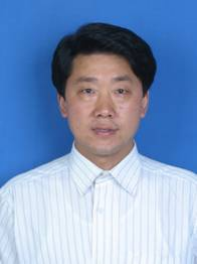
Bing Xu, Nanchang Institute of Technology, China, Prof.
Biography:
Xu Bin, Professor, Master Supervisor, Dean of School of Civil and Architectural Engineering, Nanchang Institute of Technology. He enjoys the special allowance of the State Council, the technical leader of major disciplines in Jiangxi Province, and the Millions of Talents Project in Jiangxi Province. Over the years, he has been unremittingly combining theoretical teaching and scientific research, mainly in geotechnical engineering, orbital engineering, seismology, etc., scientific research involves mathematics, physics, solid mechanics, materials science, structural engineering and computer science and other multidisciplinary basic theory and applied technology, especially in soil dynamics research. His research has been supported by 5 National Natural Science Foundation of China and Jiangxi Provincial Natural Science Foundation Key Project Fund, and his research results in the basic theory of vibration wave propagation in saturated soft soil foundation, the calculation method of soil-structure system coupling effect and the vibration isolation control mechanism have been published in domestic and international top professional core journals. For example, "Soil Dynamics and Earthquake Engineering", "Computers and Geotechnics", "Mechanics Research Communications", "Journal of Sound and Vibration", "Geotechnical Mechanics", "Chinese Journal of Civil Engineering", etc. He has published more than 110 related academic papers. Among them, 49 papers were retrieved by SCI, 81 were retrieved by EI, and 3 monographs were published. The research results have been cited 284 times by experts at home and abroad, including 274 times by SCI. The research results won the second prize of Jiangxi Province Natural Science Award (ranked first), the National Excellent Doctoral Dissertation Nomination Award and the Shanghai Excellent Doctoral Dissertation Award in 2018.
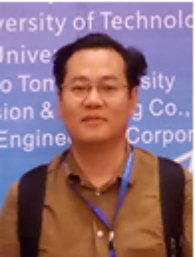
Xiang Ping, Central South University, China, Prof.
Biography:
Prof. Dr. Xiang is a professor at Central South University, a doctoral supervisor, associate director, and an expert selected for Hunan high-level talent program. He completed his doctoral degree at the City University of Hong Kong in 2012 and served as a postdoctoral researcher and associate researcher at the City University of Hong Kong from 2012 to 2017.
He has been the principal investigator for a National Natural Science Foundation of China project, and he has published over 120 research papers, including more than 100 SCI-indexed papers, several of which are highly cited (ESI) papers, and multiple top-tier SCI papers. Dr. Xiang has been granted 3 patents and holds 14 software copyrights. Dr. Xiang has also been invited to visit several international universities, including Swansea University and the University of Strathclyde in the UK, Kunsan National University in South Korea, and Dartmouth College. Dr. Xiang's research interests encompass the dynamics of high-speed railway track-bridge systems, the safety of high-speed railway bridges under seismic actions, finite element methods in computational mechanics, meshless methods in computational mechanics, prefabricated construction, composite structures, computational micro and nano mechanics.
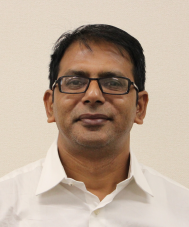
Safiur Rahman, Dhaka University, Bangladesh, Prof.
Biography:
Md. Safiur Rahman received his MASc and PhD Degrees in Civil & Environmental Engineering at Dalhousie University, Canada. He has B.Sc. (1st Class), M.Sc. (1st Class) and M.Phil Degrees in Applied Chemistry and Chemical Engineering at Rajshahi University, Bangladesh. Mr. Rahman been serving as a scientist of Bangladesh Atomic Energy Commission since his graduation in 2000. Mr. Rahman has been pursuing his research work related to the distribution and environmental impacts of potential toxic elements in surface water, groundwater, aquatic environment, food chain, & climate change, and their impact & management in environmental restoration. He has achieved several national and international awards. Dr. Rahman has also been enlisted in the “World Top 2% Most Cited Researchers" in 2022, 2023 and 2024”, which was published by Stanford University, USA. Mr. Rahman has a good number of scientific articles (> 200), book chapters (>10). He has published eight (8) scientific books, which were published in USA, Germany and UK; and his Google Scholar Citation No is now around 8000.
Prof. Dr. M. Safiur Rahman is part time faculty members at ‘Dhaka University, Bangladesh’; ‘Stamford University Bangladesh’ and ‘Daffodil International University’, Bangladesh. Prof. Rahman has been serving as a member of the Academic Committee of ‘Islami University Kushtia’; ‘Patuakhali Science and Technology University’; ‘Noakhali Science and Technology University’; ‘Bangabandhu Sheikh Mujibur Rahman University Naogaon’ and so one.
Mr. Rahman is a member of Association of Professional Engineers of Nova Scotia (APENS), Canada; Society of Petroleum Engineers (SPE), USA; American Water Work Association (AWWA); Canadian Water Network (CWN); Canadian Society of Civil Engineering (CSCE); Society for Environmental Toxicology & Chemistry (SETAC); Bangladesh Chemical Society (BCS); Bangladesh Atomic Energy Scientists Association (BAESA), and Asiatic Society of Bangladesh (ASB).
Reviewing Process
Manuscript submitted to ICESCE conference will go through Pre-check and Peer Review:
-ICESCE Editors perform an initial check of the manuscript’s suitability upon receipt, and use a software tool to finish the plagiarism analysis, manuscripts are out of conference topics will be rejected directly, generally, authors will receive the result within 3-5 working days in this round.
-Only the manuscripts passed the initial checking can be submitted to reviewers, ICESCE Editorial Office will then organize the peer-review process performed by independent experts. Papers will be strictly and thoroughly peer-reviewed by experts and reviewers.
-All regular papers are reviewed by at least two reviewers, but usually by three or more, and rated considering: Relevance, Originality, Technical Quality, Significance and Presentation of the submissions; There are four results: 1, Accept; 2, Accept after Minor Revisions; 3, Reconsider after Major Revisions; 4, Reject.
-Authors have 2-3 weeks to make minor or major revisions after received the comments from reviewers. Usually, one round of major revisions is allowed.
-Only the submission passed the peer review and accepted by reviewers will be included in the conference proceeding finally.
Supported By
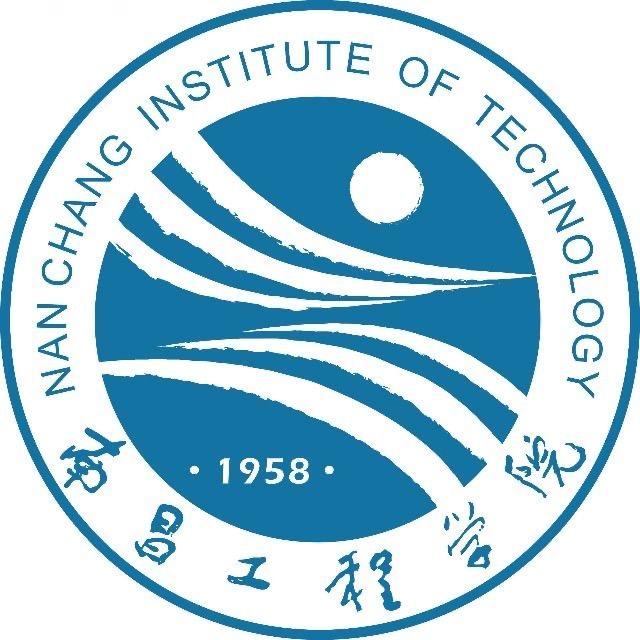
Nanchang Institute of Technology (南昌工程学院)

Civil Engineering Academy of Jiangxi Province(江西省土木建筑学会)

Hubei Zhongke Institute of Geology and Environment Technology(湖北省众科地质与环境技术服务中心)

Beijing Engineering Management Science Institute
Organizing Committee of ICESCE 2024|Miss Fu
Tel./WeChat:13971086278
Email: icesceconf@163.com
学术会议平台
2025 ICESCE
Copyright © bdiie All Rights Reserved1. 鄂ICP备20001789号-3 ![]()